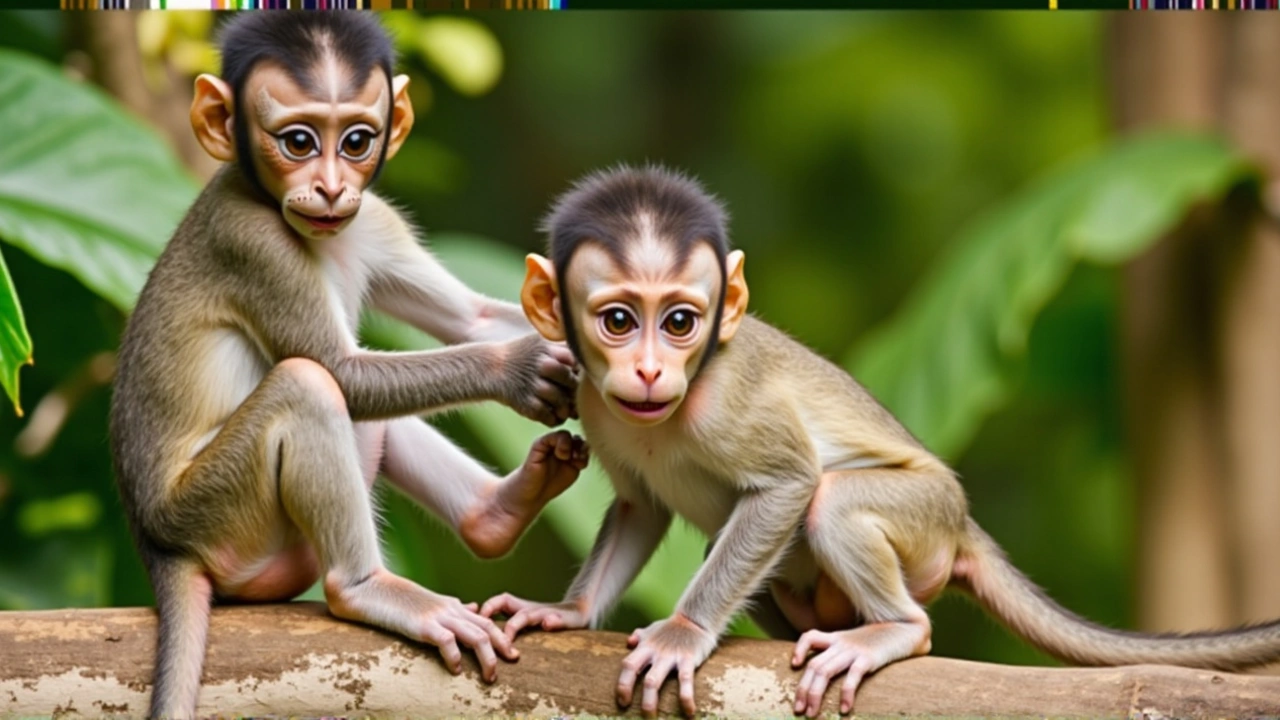Rhesus macaques: what they are and why they matter
Rhesus macaques are one of the most common primates people see near cities and farms across South and Southeast Asia. They’re smart, social, and often bold around people. That mix makes them fascinating but also a source of real problems when they live close to us.
Who they are and how to spot them
Rhesus macaques are medium-sized monkeys with brown-grey fur and pink faces. Adults have a stocky build and short tails. You’ll notice loud calls, quick movements, and lots of grooming between individuals — that’s how they keep bonds tight. They eat fruit, leaves, insects, and whatever human food they can grab, which is why they turn up near markets and temples.
The species is adaptable. They live in forests, mountains, and towns. In cities they climb buildings, raid trash, and sometimes snatch food from people. That makes them easy to spot but tricky to live near.
Social life, breeding and behaviour
Rhesus macaques live in groups of 20 to over 100. Each group has a clear hierarchy. Dominant males and females get the best food and mates. Young macaques learn by copying adults — play is how they practice climbing, fighting and foraging. Females usually give birth to one baby a year, and mothers are very protective.
They’re clever problem-solvers. Give them a simple latch and they’ll figure it out. That ability helps them survive around people, but it also means they can open bins, break into homes, and become a nuisance quickly.
Because they live so close to humans, conflicts are common. People get bitten, property gets damaged, and crops are lost. The best results come from prevention, not chasing or feeding them.
Health risks and research role
Rhesus macaques are important in medical research; studies using them have helped develop vaccines and treatments. But that same closeness to humans raises health concerns. They can carry diseases that jump to people, including bacterial infections and viruses. Always avoid direct contact. If bitten or scratched, wash the wound immediately and get medical advice.
Local health teams and wildlife officers can advise on vaccination and testing if an incident happens. Never try to treat or restrain a wild macaque yourself.
If you live or travel where rhesus macaques roam, follow simple steps: don’t feed them, secure trash, keep doors and windows closed, and store food out of sight. Use monkey-proof bins and fencing if needed. Report aggressive animals to local wildlife authorities rather than confronting them.
Rhesus macaques are not endangered — they’re resilient and widespread. That’s good for the species but means people must learn to share space smarter. Knowing their habits and risks gives you the upper hand: you can enjoy seeing them without making trouble for you or the macaques.

Escape of 43 Monkeys from South Carolina Lab Sparks Public Interest and Safety Concerns
Keabetswe Monyake Nov 9 20In a surprising turn of events, forty-three Rhesus macaque monkeys managed to escape from the Alpha Genesis facility in Yemassee, South Carolina, due to human error. The monkeys, young and harmless, aren't infected with any disease, easing public concerns. While they caused a stir in the community, Alpha Genesis has equipped the area with traps and thermal imaging to secure their safe return. The organization aims to ensure no further incidents occur.
More Detail